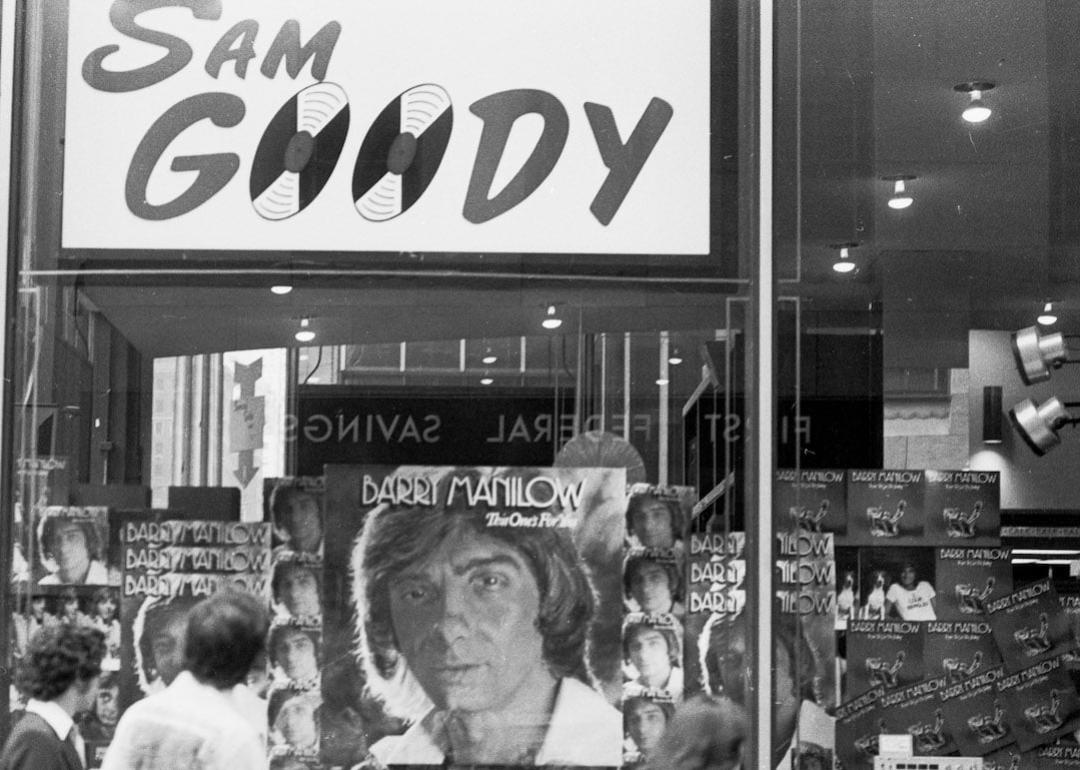
25 major retail chains that no longer exist
25 major retail chains that no longer exist
At the start of this decade, many of America's beloved major retailers announced that they'd be closing their stores—Big Lots, Walgreens, Macy's, JCPenney—the list goes on. It's a pattern that recurs throughout retail history, with recent casualties including Joann Fabrics and Party City.
These are far from isolated incidents. According to Coresight Research, 8,270 retail stores closed in 2025, following 8,825 closures in 2024—both figures trailing the pandemic peak of 9,700 closures in 2020. Retail bankruptcies drove much of the downsizing, with 32 retailers filing for bankruptcy in 2025. Rite Aid, Joann, Party City, and Big lots topped the list of the most shuttered stores.
To understand why so many beloved shops are closing, it may be helpful to look at their beginnings. Chains proliferate and incur new expenses as they expand. Then, they hit the limit of their funding and growth opportunities and downsized to manage their debt and restructuring. Some can recover. Many, however, end up filing for bankruptcy and/or getting bought out and eventually folding.
It's a familiar cycle. The economy improves, and the market becomes saturated with choice. Very few can survive when the economy slows, dips, and dives. With each cycle, stores that we thought would always be around, stores that defined our childhoods, even our parents' childhoods, fizzle, fade, and become the stuff of retail history.
Stacker reviewed various sources to examine multiple major retail chains that no longer exist. Many of these chains led the pack at one point in history. Some even paved the way for their competitors, who eventually overtook them.Other chains couldn't keep up with the rise of e-commerce sites like Amazon. Sharper Image, for example, was once the only place where tech lovers could flock to play with high-end and niche gadgets. However, Amazon started selling similar products online.
While it's all part of evolution and Darwinian economics, the sad reality is that when these stores die, parts of our memories go with them. Still, it's a lesson that most businesses must learn: adapt with the times, or be lost forever. Are you ready to see the top 25 major retailers that kids today will never remember? Keep reading to see if your favorites made the list.
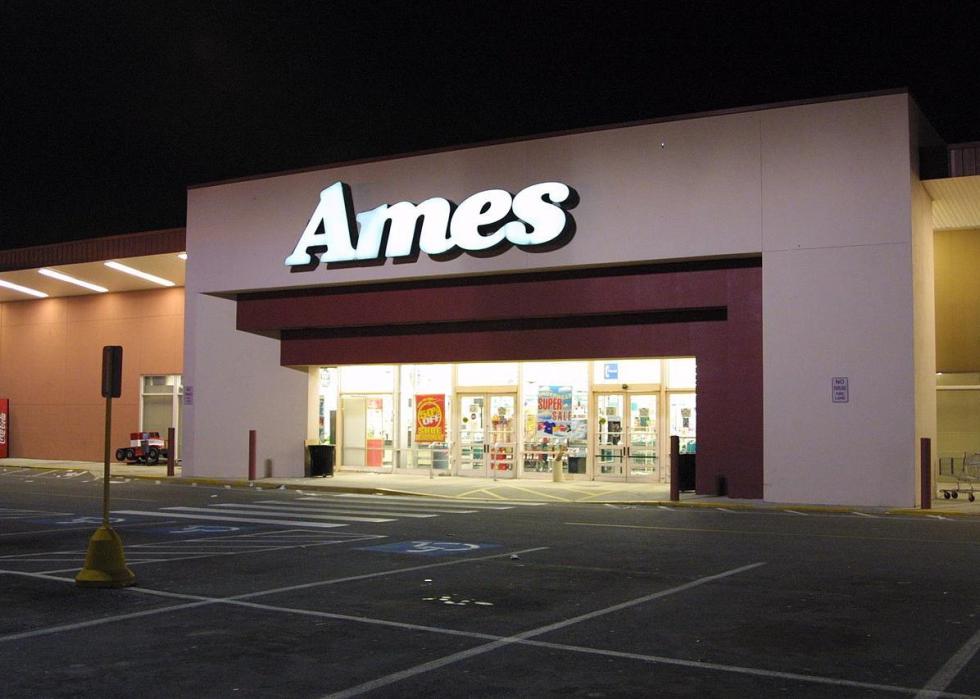
Ames
- Category: Department store
- Year founded: 1958
- Year defunct: 2002
- Lifetime: 44 years
Before there was Walmart—four years before, to be exact—there was Ames. The discount retailer used to sell a massive range of merchandise, including apparel, electronics, housewares, patio furniture, jewelry, and beyond. After 44 years of business, the corporation filed for bankruptcy, closing 327 stores and leaving 21,500 employees without jobs.

Builders Square
- Category: Home improvement
- Year founded: 1970
- Year defunct: 1999
- Lifetime: 29 years
When Home Depot and Menards came into the picture, the sun was setting on Builders Square, one of the original large-scale home improvement stores. In 2011, the company filed for Chapter 11 and liquidated its remaining 117 stores. Builders Square had been struggling for a few years before that and had been sold off by Kmart in 1997. Still, the company failed to turn a profit and eventually shut its doors.

Circuit City
- Category: Electronics
- Year founded: 1949
- Year defunct: 2009
- Lifetime: 60 years
Back in the 1970s and 1980s, Circuit City was on top of the electronics game. It helped to pioneer the big-box concept, making a one-stop shop for everything from televisions and stereos to refrigerators and automobiles, which spun off into CarMax. At its height, Circuit City had 1,520 stores across the United States and Canada. But in the 1990s, that began to change. CBS News analysis attributed this to stores becoming too big—and therefore too impersonal—and the fact that it stopped paying commissions to its sales team. When the financial crisis struck, Circuit City began closing stores and laying off its employees, eventually closing due to bankruptcy.
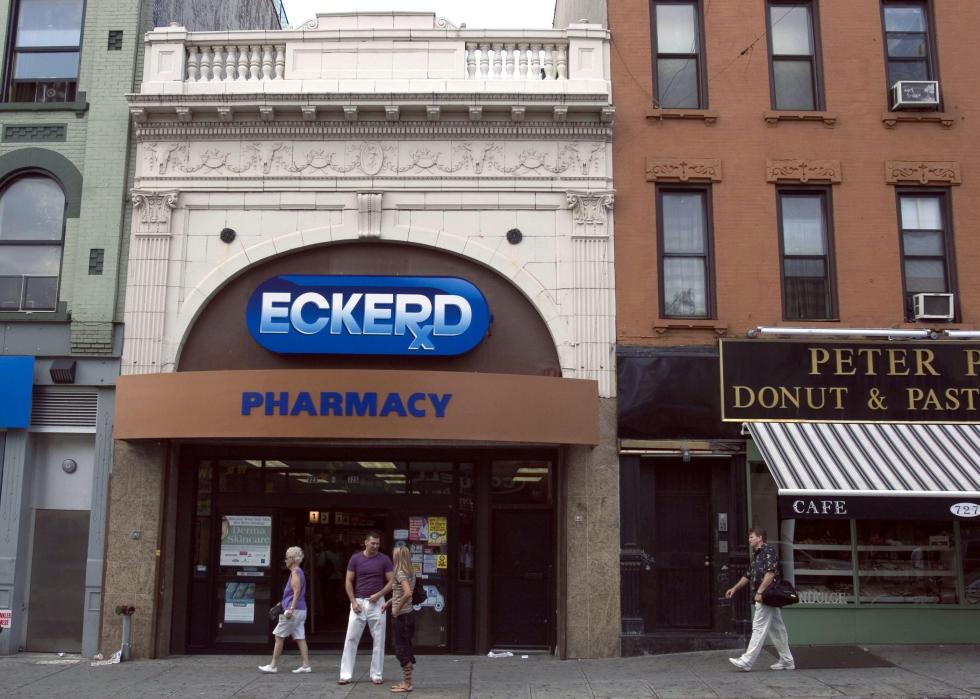
Eckerd's
- Category: Drug store
- Year founded: 1898
- Year defunct: 2007
- Lifetime: 109 years
For more than 100 years, Eckerd's was much more than a household name. It started in 1898 in Erie, Pennsylvania, when J. Milton Eckerd opened his first store. Over time, the empire had more than 2,000 stores in 20 states. In 2007, Rite-Aid Corporation acquired Eckerd's and converted its stores to Rite-Aids in the quest to be the country's largest drugstore chain, competing with Walgreens and CVS.

Frank's Nursery & Crafts
- Category: Home decor and craft stores
- Year founded: 1957
- Year defunct: 2004
- Lifetime: 47 years
Frank's Nursery & Crafts, one of the country's largest lawn and garden retailers, was founded in 1957 in Detroit. The store stocked its shelves with live plants, fertilizers, and garden tools. But, a weakening economy took its toll on the chain, which at the time of its closing operated 169 stores in 14 states. It filed for bankruptcy in 2004 after listing $141 million in debt and failing to find a loan to bail it out.

Friedman's
- Category: Jewelry
- Year founded: 1920
- Year defunct: 2008
- Lifetime: 88 years
The Oklahoma jewelry chain Friedman's Jewelers was founded in 1920 and remained a family-run business until 1990. It had 20 stores across the state. But for a few years before closing, the company had experienced financial instability and allegations of wrongdoing, including a slew of civil lawsuits. Friedman's filed for Chapter 11 bankruptcy protection in 2005.
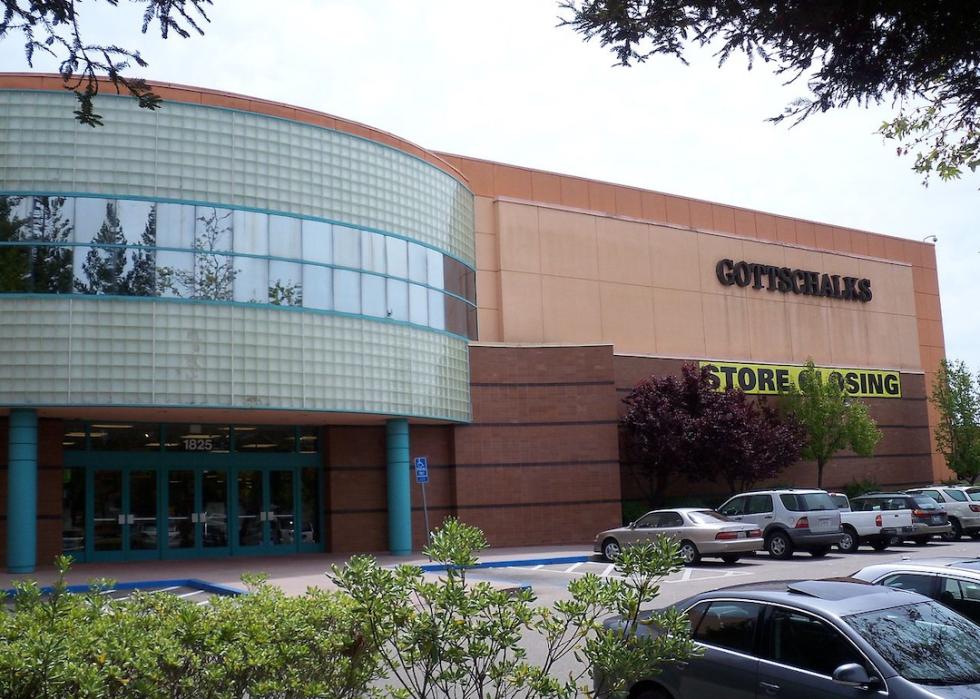
Gottschalks
- Category: Department store
- Year founded: 1904
- Year defunct: 2009
- Lifetime: 105 years
One of the biggest department store chains in America, Gottschalks ended its 105-year legacy with a court-ordered liquidation. Founded by Emil Gottschalk, a German immigrant in 1904, Gottschalks had 58 department stores in the Western U.S. When it folded, the company had somewhere between $100 million and $500 million in debt and up to 25,000 creditors.
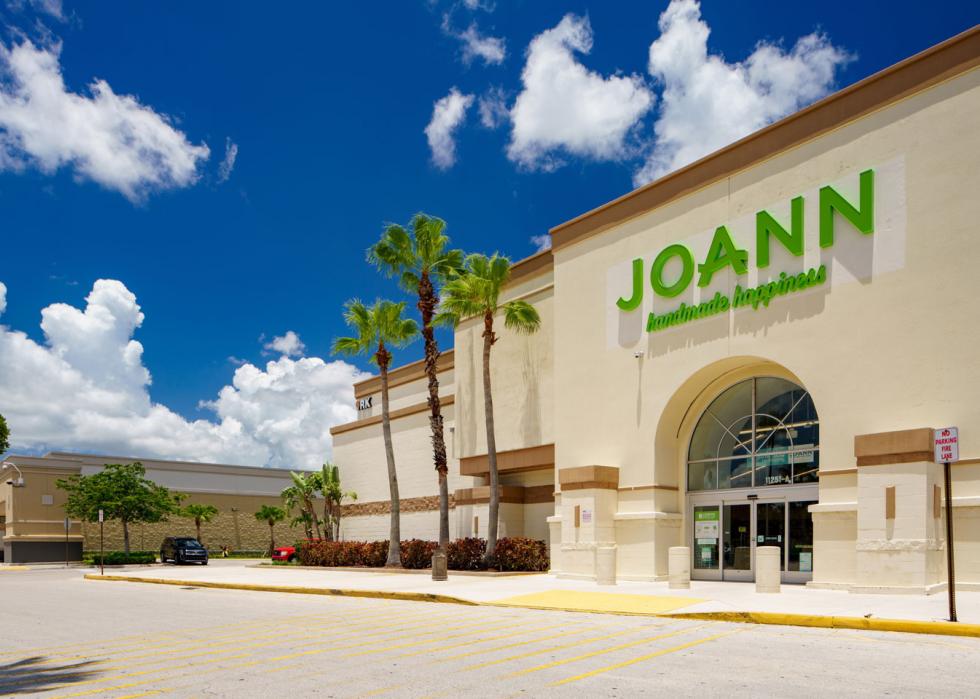
Joann
Unlike so many other companies, Joann—formerly known as Jo-Ann Fabrics—actually saw sales rise during the pandemic, thanks to all the DIY projects people took on while stuck at home. After lockdown ended, however, the company struggled to return to its former glory, and in April 2025, announced that it would be closing its nearly 800 locations by the end of May. After multiple bankruptcies and mass closure announcements, the end of Joann was sad but not surprising.
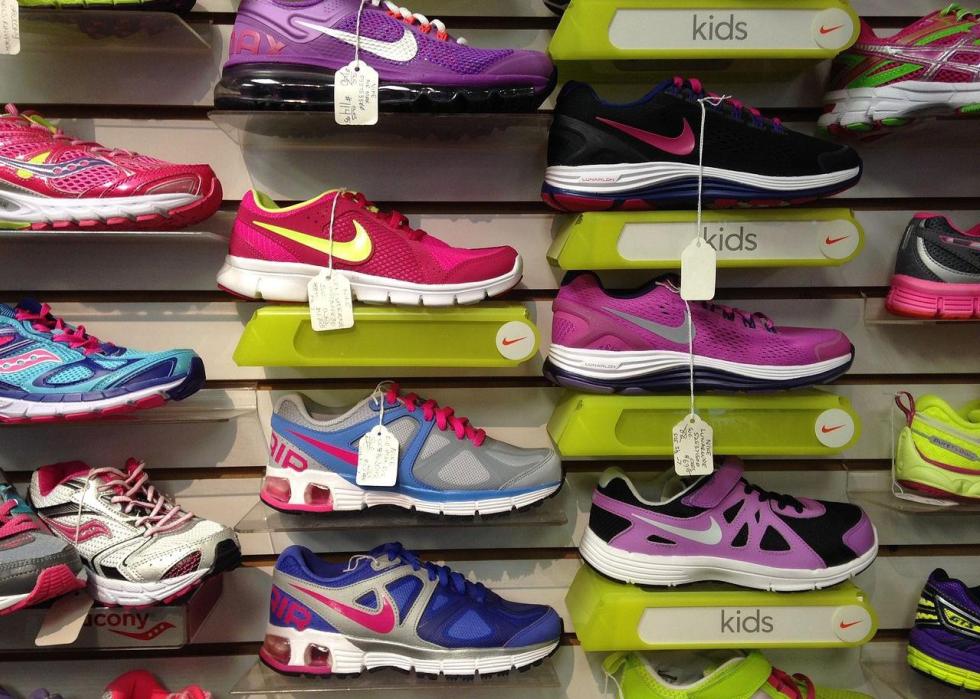
Just for Feet
- Category: Shoes
- Year founded: 1977
- Year defunct: 2004
- Lifetime: 27 years
Just For Feet was one of the original superstores in America. Founded by Harold Ruttenberg, the first store opened in 1988 in Birmingham, Alabama, offering a massive selection of athletic shoes at deeply-discounted prices. The brand began to expand like wildfire. Just for Feet was named America's sixth-fastest-growing company by Fortune magazine in 1997. In 1999, Ruttenberg scored an enviable time slot for a Super Bowl ad, but the commercial that ran was so culturally and racially insensitive that it spiraled into a host of image issues for Just for Feet. The company was forced to file for Chapter 11, and its assets were sold in 2000.
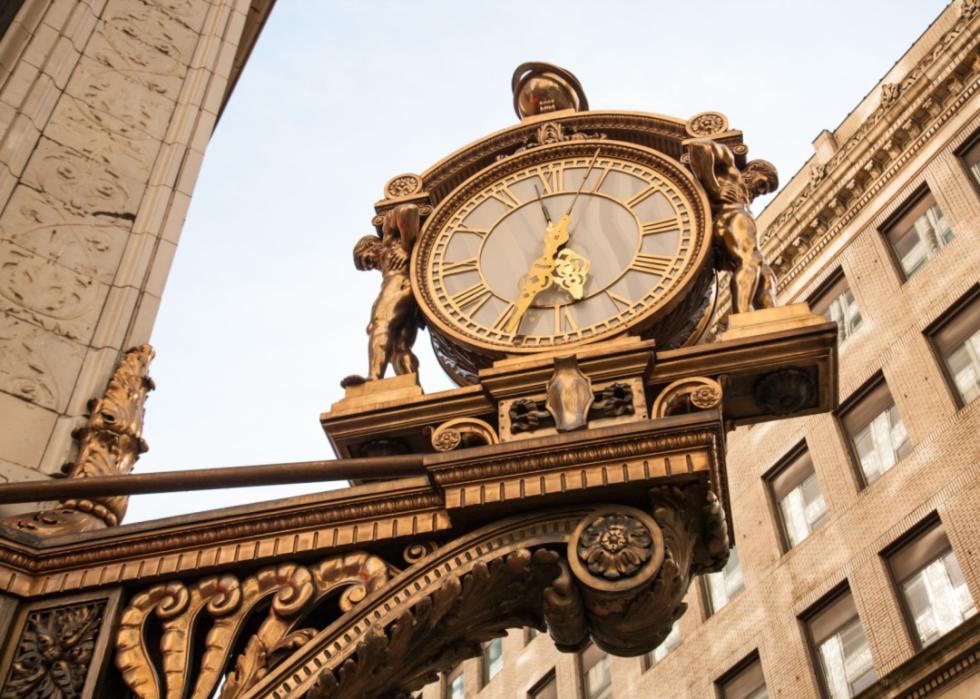
Kaufmann's
- Category: Department store
- Year founded: 1871
- Year defunct: 2006
- Lifetime: 135 years
Kaufmann's Department Store, an icon of historic Pittsburgh, was founded in 1871 by Jason and Isaac Kaufmann, two brothers who had emigrated from Germany. The business grew quickly and acquired several adjacent addresses. Over the years, the building received many interior touches and updates, many of which are icons themselves, like the Kaufmann clock and the grand staircase. This building remained the flagship, as other branches popped up in Pennsylvania, Ohio, and New York. In 2006, the brand and regional branches were purchased by and converted into Macy's.

KB Toys
- Category: Toys
- Year founded: 1922
- Year defunct: 2009
- Lifetime: 87 years
From 1922 to 2009, KB Toys was America's reigning toy store, with more than 1,300 stores across the country. Eventually, however, the company could not keep up with competitor Toys "R" Us, which acquired KB Toys' website, trademarks, and intellectual property rights. There was talk of a KB Toys revival after Toys "R" Us went out of business, but that has yet to come to fruition.
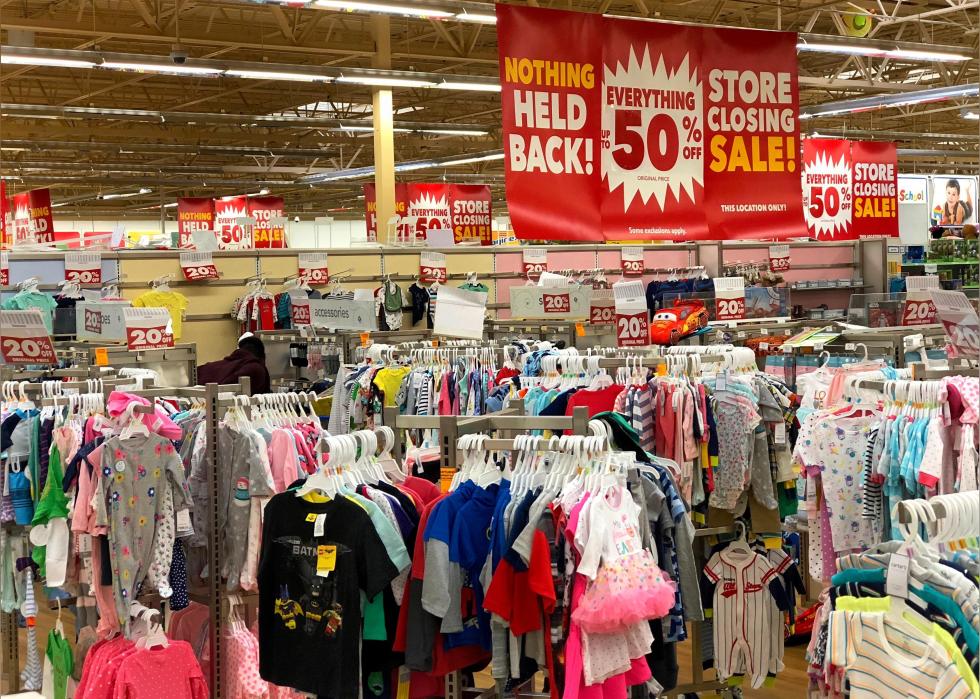
Kids 'R' Us
- Category: Clothing
- Year founded: 1983
- Year defunct: 2004
- Lifetime: 21 years
In 1983, Kids "R" Us opened as an offshoot of Toys "R" Us. The company sold children's clothing at discount prices. The company was open for 20 years, with 146 stores. It closed in 2004 following prolonged disappointing sales.
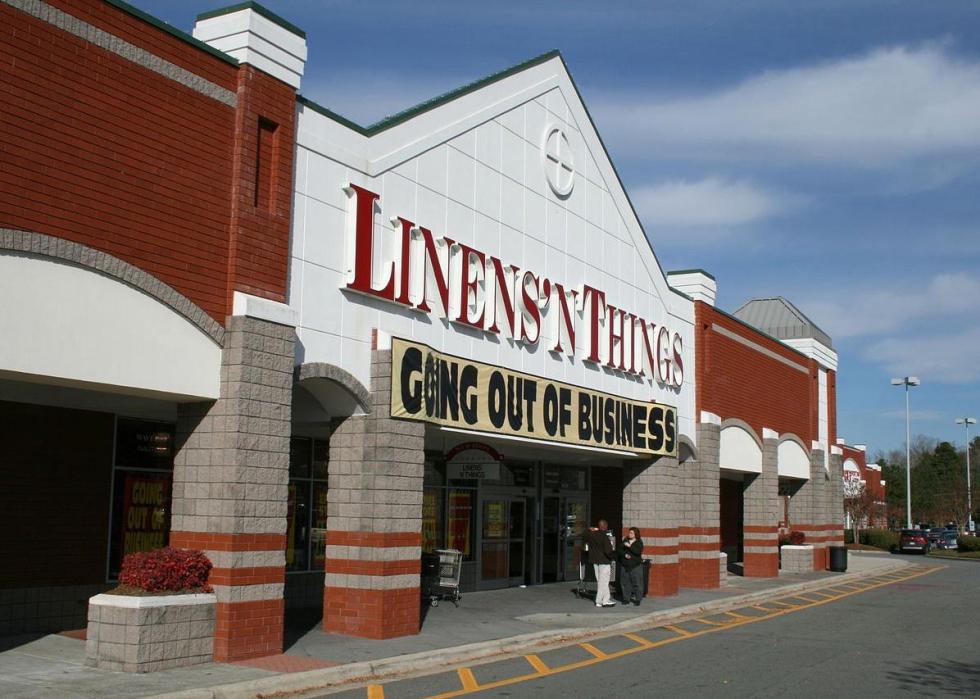
Linens 'n Things
- Category: Housewares and accessories
- Year founded: 1975
- Year defunct: 2008
- Lifetime: 33 years
Linens 'n Things was a popular niche retailer that sold household items. At its height, it had 589 stores all over the country. Its demise was caused by a variety of things, including a decline in housing sales, higher prices for goods made in China, and the burden of paying $650 million in debt. By 2008, the company had filed a reorganization plan but was forced to have a liquidation sale.
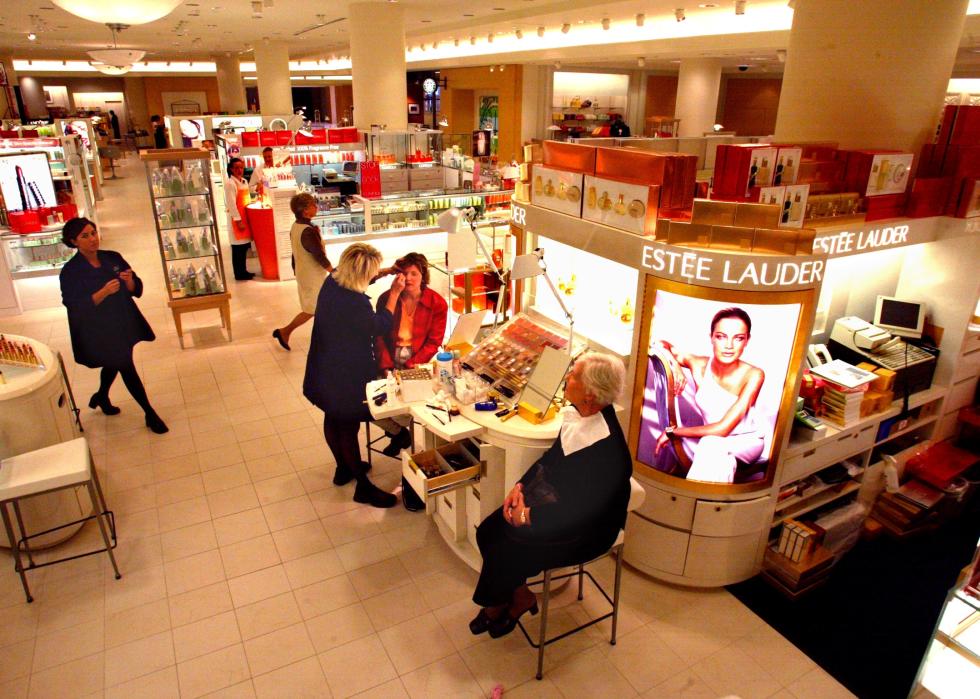
Marshall Field's
- Category: Department store
- Year founded: 1852
- Year defunct: 2006
- Lifetime: 154 years
Marshall Field's, whose flagship was in Chicago, was an icon for the Windy City. Founded in 1852, the original store on State Street was once the largest in the world. The brand expanded and added more department stores all over the country. Eventually, through a series of sales to various other retailers, the then-parent company of Marshall Field's, the May Company, was acquired by Federated Department Stores, Inc., the operator of Macy's, and Marshall Field's became part of that empire.

Merry-Go-Round
- Category: Clothing
- Year founded: 1968
- Year defunct: 1996
- Lifetime: 28 years
Merry-Go-Round, the flagship brand of Merry-Go-Round Enterprises, was one of the more popular fashion brands in the 1980s and 1990s. In fact, the company purchased the Chess King chain in 1993, which doubled its size. But after being one of the leaders in fashion for a few decades, a few false moves started to put it on a decline—namely, the company bet on styles that just weren't popular with teens at the time. Eventually, it was forced to file for Chapter 11 and began to liquidate assets in 1996.
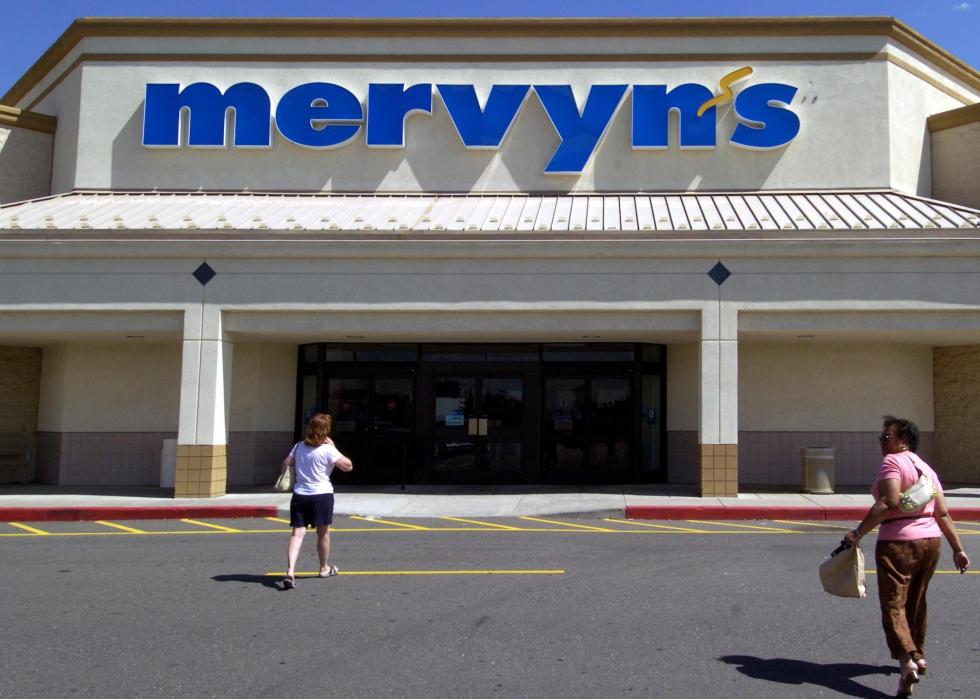
Mervyn's
- Category: Department store
- Year founded: 1949
- Year defunct: 2009
- Lifetime: 60 years
What started as a single department store in San Lorenzo, California, erupted into a West Coast empire. Selling work pants and school clothes, the department store was frequented by middle-class families. At its peak, Mervyn's had 300 stores in 16 states. Eventually, owner Mervin Morris sold the name to Dayton Hudson, which is where the downfall began. The new owner couldn't keep up with changing economic times and declared bankruptcy in 2008.
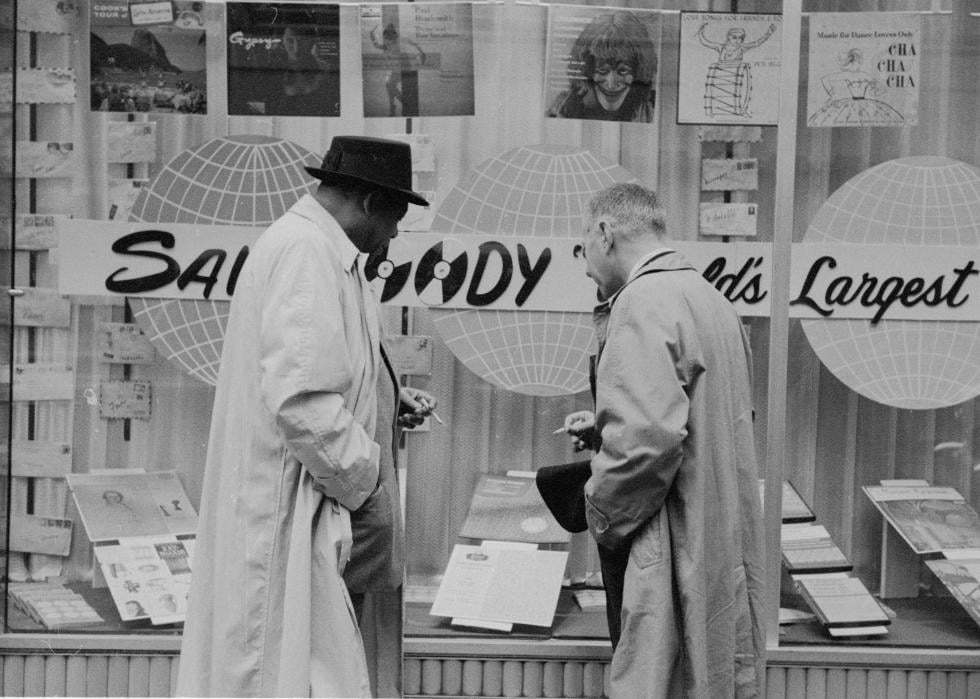
Sam Goody
- Category: Music
- Year founded: 1951
- Year defunct: 2006
- Lifetime: 55 years
Everyone's favorite record store started in Manhattan in the 1940s. Later, this shop became the flagship store in a booming empire of record and CD stores across the country. In fact, the flagship location accounted for 7% of the nation's sales of 33 ⅓ rpm records in 1955. Eventually, owner Sam Goody sold the business to the American Can Company but stayed on as a consultant for a few years. The company was sold several more times. Ultimately, all of the Sam Goody locations were transformed into FYE entertainment retail stores.
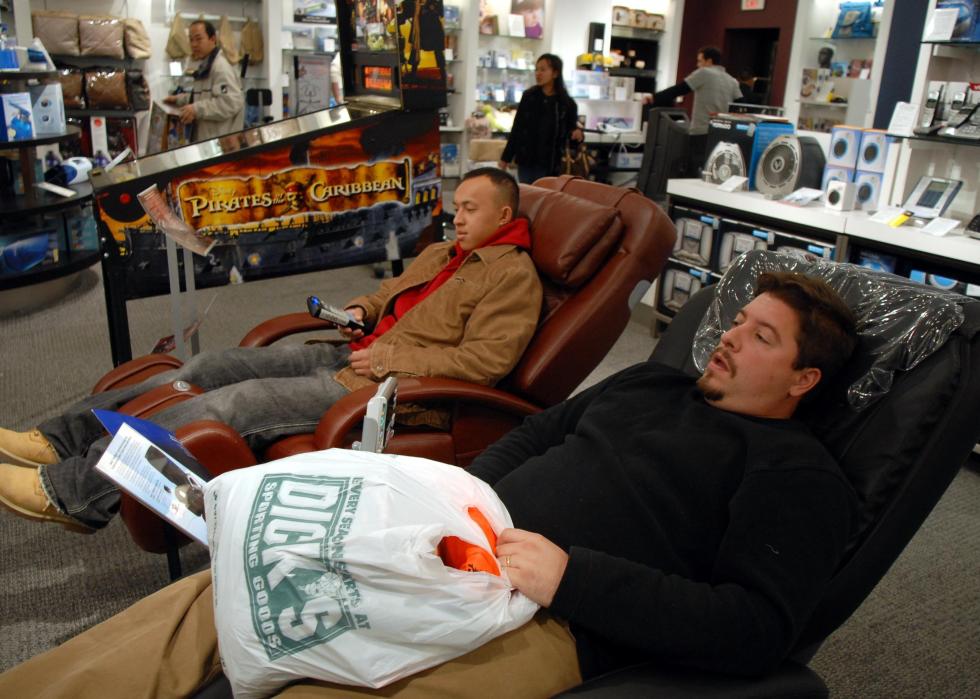
Sharper Image
- Category: Electronics
- Year founded: 1977
- Year defunct: 2008
- Lifetime: 31 years
What happened to the Sharper Image? In a word: Apple. But it's a little more complicated than that. First, it was Best Buy and Amazon, which started stocking the same high-end, cutting-edge products that previously could only be found in stores like Sharper Image. But once Apple became the new cool kid on the block for techies, Sharper Image's days were numbered. Investors bought the company, but in 2008, it declared bankruptcy.
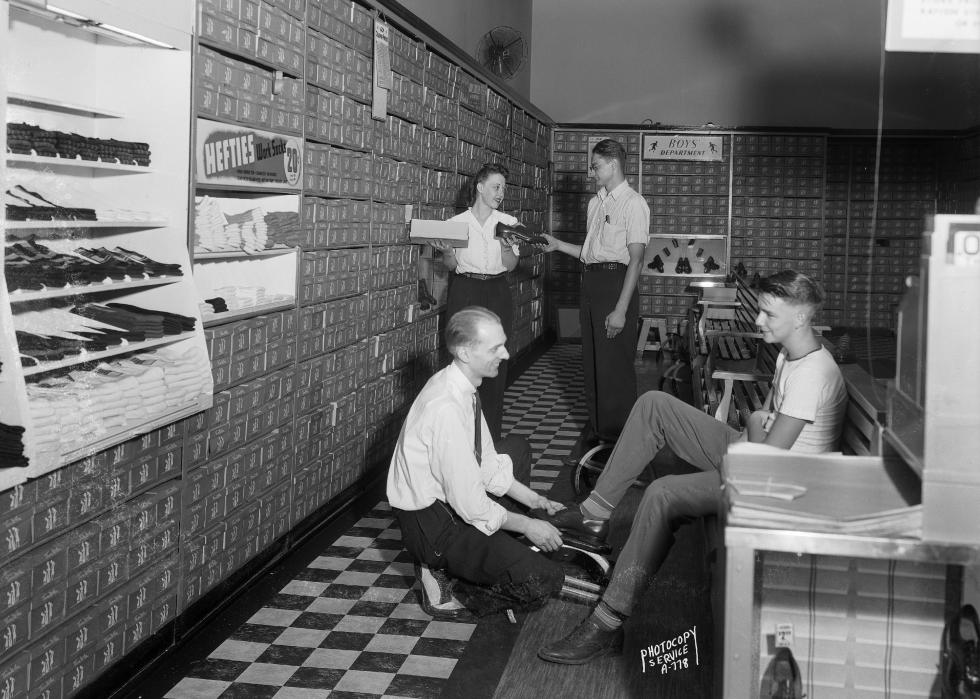
Thom McAn
- Category: Shoes
- Year founded: 1922
- Year defunct: 1996
- Lifetime: 74 years
It was once "America's shoe store." For 74 years, Thom McAn was a favorite for reasonably priced footwear. In fact, when it was founded in 1922, it was designed as a place to sell nice shoes for $3. But with the rise of shopping malls and trendier stores, Thom McAn's numbers dwindled. A restructuring plan saw the brand change the name of its remaining stores to Footaction while the rest folded.
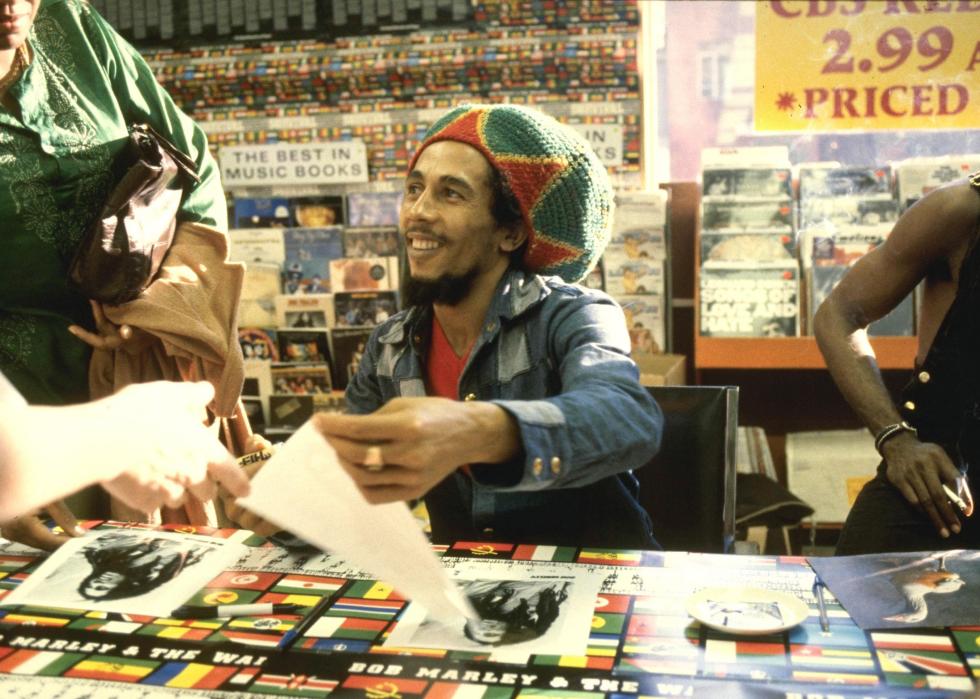
Tower Records
- Category: Music
- Year founded: 1960
- Year defunct: 2006
- Lifetime: 46 years
Many Americans' youth was defined by Tower Records. The legendary music store was a trailblazer in the industry, with stores all over the country, each curated by the on-site staff. Their collections were highly localized and packed with passion. But with the rise of online music and discount chains like Best Buy, Tower's prices were undercut and sales began to suffer. The chain lost money 13 quarters in a row. In 2006, it declared bankruptcy for the second time.
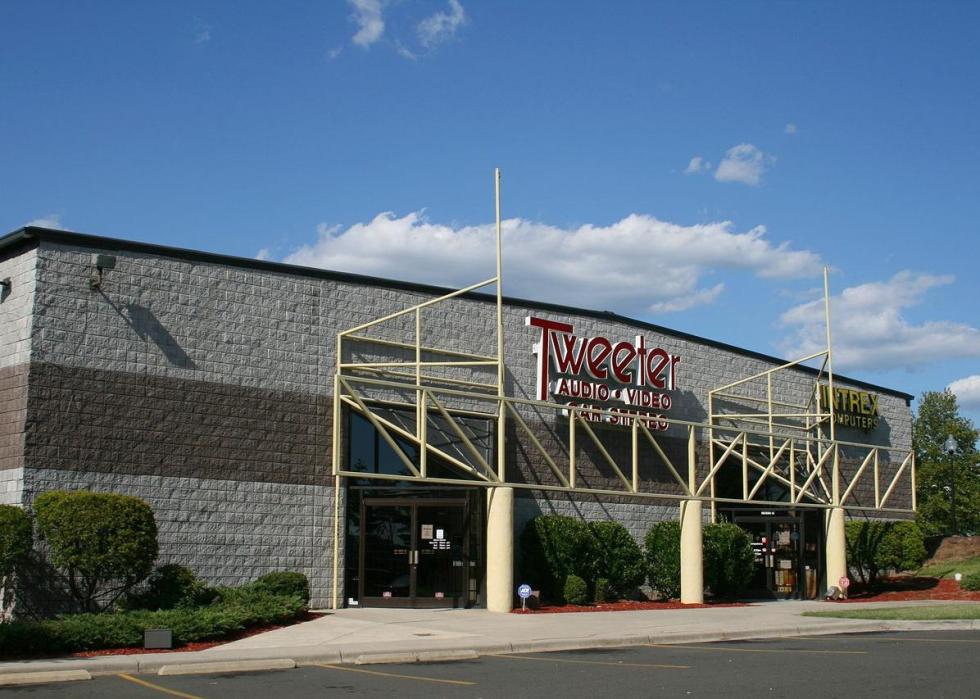
Tweeter
- Category: Electronics
- Year founded: 1972
- Year defunct: 2008
- Lifetime: 36 years
Tweeter was a consumer electronics retailer founded in 1972 and known for its TVs, radios, and home theater systems. It was also the company that held the naming rights to the concert venue the Tweeter Center, which is now the Xfinity Center outside Boston. With the presence of electronics and bargain retailers like Best Buy and Walmart, Tweeter's profits began to suffer. By June 2007, it filed for bankruptcy, and by 2008, all of its stores were closed.

Virgin Megastores
- Category: Entertainment
- Year founded: 1992
- Year defunct: 2007
- Lifetime: 15 years
The first Virgin Megastore opened in the 1970s in London. It was because of Virgin Megastore that Richard Branson became a household name. Come 2005, it was reported that the music retailer had lost almost $340 million in the previous two years, and was only staying afloat due to loans. Branson sold the chain in 2007. In 2009, the final Megastores in operation, in New York and San Francisco, folded.
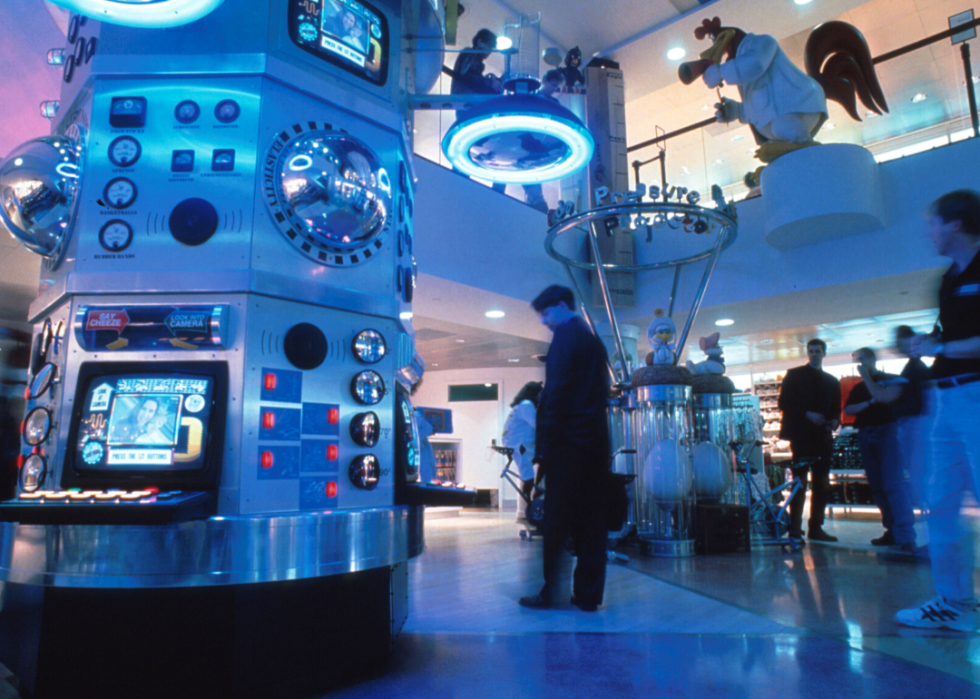
Warner Bros. Studio Store
- Category: Film and comic merchandise
- Year founded: 1991
- Year defunct: 2005
- Lifetime: 14 years
In 1991, Warner Bros., the popular film studio, opened a series of retail stores selling all manner of merchandise relating to its movies, including Looney Tunes and DC Comics items. By 1997, there were more than 100 locations, including a three-story building at 1 Times Square. A few years later, AOL Time merged with Warner, and as part of the agreement, the chain was put up for sale and stores started closing. On Sept. 11, 2001, the Warner Brothers Studio Store at the World Trade Center was destroyed, along with the Twin Towers. Other stores started closing rapidly. The last one shuttered on Dec. 31, 2001.

Western Auto
- Category: Automotive
- Year founded: 1909
- Year defunct: 2003
- Lifetime: 94 years
Western Auto, officially Western Auto Supply Company, was a chain selling car parts and accessories. Later it would sell firearms, bicycles, and more. It started in 1909 as a mail-order business in Kansas City, founded by George Pepperdine, who also founded Pepperdine University in California. Ultimately, there were about 1,200 company-owned stores across the United States, as well as more than 4,000 private franchises. Later, Western Auto went through a series of sales to other companies, one of them being Sears. By 2006, the brand was officially out of business.

Wickes Furniture
- Category: Furniture store
- Year founded: 1971
- Year defunct: 2008
- Lifetime: 37 years
Wickes Furniture was once the go-to spot for decorating the entire home. Founded in 1971, with its first showroom in Minnesota, the company eventually grew to operate 43 stores in the Western and Midwestern U.S. But come 2008, furniture companies were hit hard by the housing crisis. A slower housing market and the economic downturn meant people weren't buying as many homes—and certainly weren't refurnishing them. In February 2008, a group of liquidators bought Wickes' inventory, and more than $75 million worth of furniture was sold off.
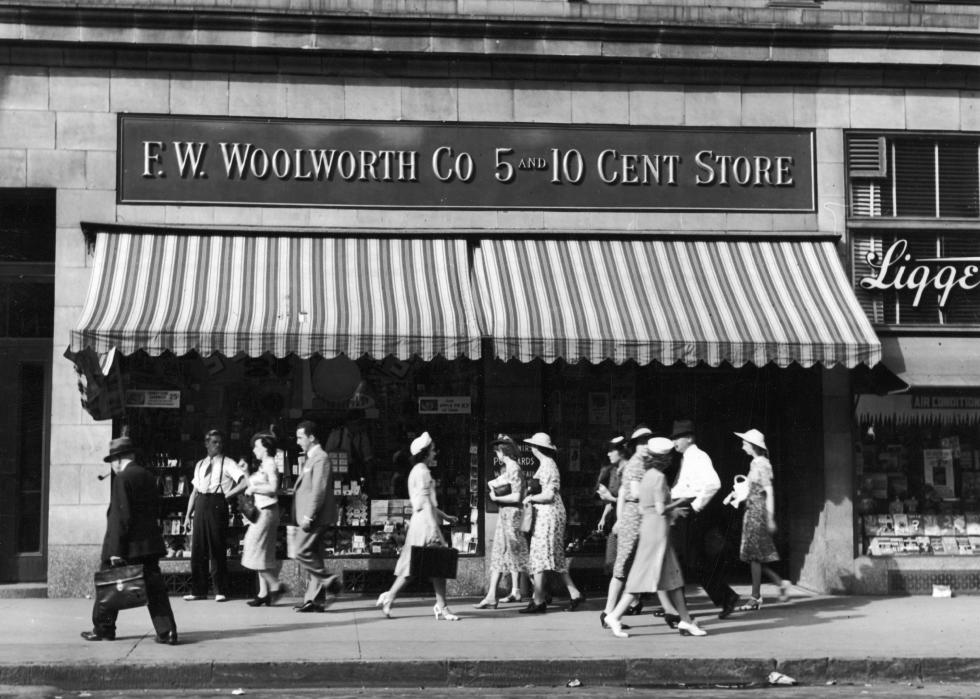
Woolworth's
- Category: Department store
- Year founded: 1879
- Year defunct: 1997
- Lifetime: 118 years
Remember the original five-and-dime stores? Well, they basically started with Woolworth's. Selling factory-made goods at remarkably low rates, Woolworth's was the first brand to expand internationally, with more than 5,000 stores around the world. In the mid-1920s, a Woolworth's store opened, on average, every 17 days. After World War II, growth slowed due to the rise of competitors. As quickly as Woolworth's accelerated, by the 1970s stores started shutting down in batches. Eventually, competition from discount retailers forced Woolworth's to close its variety stores in 1997.



